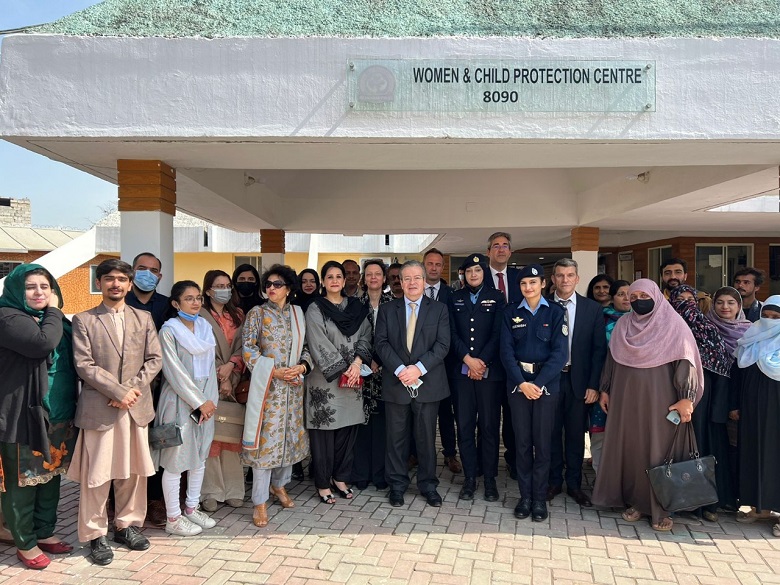ISLAMABAD, Pakistan: The Islamabad Capital Territory (ICT) Police on Wednesday inaugurated a Women Police Station in G-7 – an initiative of the police described as a necessary and proactive move in the right direction to ensure gender and child sensitive policing services – with the support of Group Development Pakistan and a partner donor.
The Women Police Station situated in G-7 in Islamabad is a specialized facility dedicated to exclusively handle cases related to gender violence, domestic and child abuse, and harassment.
It will also welcome women in conflict or in contact with the law.
The Staff at the Women Police Station is comprised of trained female officers to make it easier for women to lodge their complaints.

Speaking at the inauguration ceremony at the women police station in the Federal Capital, SP Operation Amna Baig highlighted that these efforts to setup a dedicated women police station help serve marginalized segments of the population and results from a trustworthy partnership with CSOs and foreign missions.
The women police station has also inducted female psychologists to provide assistance to complainants with greater efficiency and sensitivity.
Moreover, a dedicated space for children has been created with toys, books, games and swings to make them more comfortable.
ASP Beenish Fatima Sub-Divisional Police Officer (SDPO) stated that “Our female police officers are trained on how to engage with the victims in a professional manner.”
She also mentioned that this initiative will help in increasing the reporting of the cases and also facilitate women for complaint registration and redress of their genuine issues.
Speaking at the event Executive Director of GDP Saima Qadeer stated that “Steps taken by the ICT Police will enhance public trust on police and also remove barriers to reporting complaints”
The aim of these measures is to make access to justice easy for women and children, provide them with an environment which is conducive to their needs, and which impedes secondary victimization and trauma. It directly contributes to achieving SDGs 5 and 16.2.
